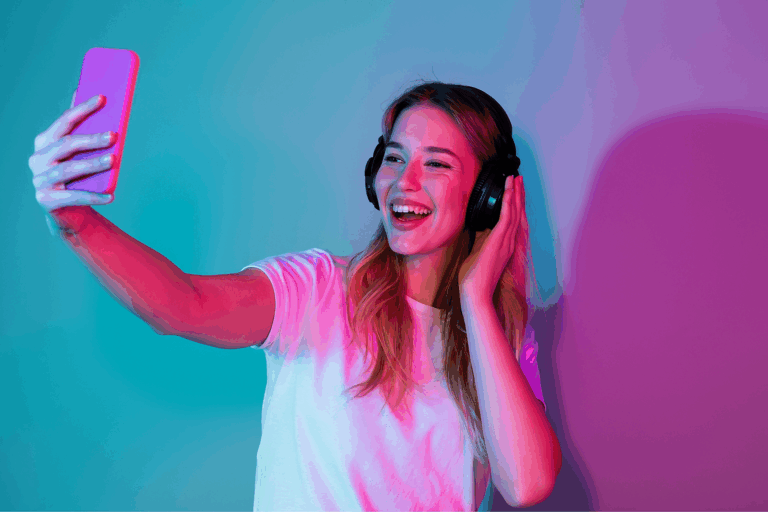A Guide to Facebook Ad Specs

Since its launch in 2014, Facebook advertising has matured both in capabilities and prominence. In 2019, the social network’s ad revenue was nearly $70 billion, with mobile accounting for 92% of the total figure.1
When figuring out how to run Facebook ads, first establish how they represent a fantastic opportunity to grow your business. But a tool is only as good as the hand that wields it. If you don’t utilize the marketing channel properly, you may miss out on opportunities to build your brand.
Want to know how to reach new customers, drive sales, and increase conversions? Perfect. This guide on Facebook ad specs has you covered.
Facebook Images and Sizes
Images and video play a critical role in any marketer’s social advertisement design and campaign.
Now that there are dozens of potential ad placements available on Facebook, you must understand the subtle nuances of each spec. Different facebook specs provide unique advantages, and what might work for one may be less effective for another. So, if you want your ad to be the right size, shape, and quality, you need to know the recommended specs.
For starters, the optimal resolution for ad images for News Feed, Instant Articles, Marketplace, Native Ads, Sponsored Messages, and Right Column is 1,2000 x 1,2000 pixels. Along those lines, Facebook Story has 1080 x 1920 pixel dimensions, and Facebook link posts have 1200 x 628 pixel dimensions.
That means you’ll probably need to build an image ad in at least these three formats since you want to create maximum reach with your ad placements. Fortunately, you can upload images with different dimensions as a single ad by choosing the “select a placement to customize” tab when you’re editing your ads on Facebook.
But if you lack the time or resources to build a custom image size, you can just use a 1:1 format. Facebook will automatically adjust the sizing to fit best.
Note: While there are universal dimensions for many ads, each ad placement has more wiggle room for character count, file type, and image-to-text ratio.
Standard Facebook Ad Specs
The most standard Facebook ad uses a still image ad format. With it, you can display your product, service, or brand to millions. An eye-popping picture and a captivating description can help you gain new customers and drive conversions. But the wrong specs on an ad may cause the reader to keep on scrolling.
The most commonly used ad format is the News Feed ads, which you can see while scrolling your Facebook News Feed (whether on mobile or desktop). But Facebook ads that fall under standard spec formatting also include Right Column, Instant Articles, and Marketplace Ads.
According to Facebook, the ideal specs for this ad type include:2
Design Recommendations
- File type: .JPG, PNG
- Ratio: 9:16 or 16:9
- Resolution: 1080 x 1080 pixels or
- Image-to-text: 5:1
Text Recommendations
- Maximum text: 125 characters
- Headline: 40 characters
- Description: 30 characters
Technical Requirements
- Maximum file size: 30MB
- Minimum width: 600 pixels
- Minimum height: 600 pixels
- Aspect ratio tolerance: 3%
Facebook Video Ad Specs
Video advertisements are another powerful visual medium that you should utilize to their fullest.
Designing a winning video ad campaign that drives engagement and clicks can be a challenge.
These types of advertisements will typically use up more time, resources, and money to produce. While there is more risk, there’s also more reward. Videos allow you to convey more information to the user. They let you tell a story about your brand or someone impacted by it. And producing multiple videos makes it possible to target a wider audience.
As you prepare your video advertisement, one of the most important things to keep in mind is the duration. People’s attention spans are short, particularly when they’re on social media. Facebook is designed to keep them scrolling, so your video needs to capture their attention and then retain it. Therefore, the recommended length for a video is 60 seconds or less. Facebook does allow for longer formats, but, in most cases, less is more.
Here are the recommended Facebook video ad specs:3
Design Recommendations
- File type: .MP4, .MOV or GIF
- Ratio: 4:5
- Video settings: H.264 compression, square pixels, fixed frame rate, progressive scan, and stereo AAC audio compression at 128kbps+
- Resolution: At least 1080 x 1080 pixels
- Video captions: Optional, but recommended
- Video sound: Optional, but recommended
Text Recommendations
- Primary text: 125 characters
- Headline: 40 characters
- Description: 30 characters
Technical Requirements
- Video duration: 1 second to 241 minutes
- Maximum file size: 4GB
- Minimum width: 120 pixels
- Minimum height: 120 pixels
Facebook and Instagram Story Specs
Facebook stories are practically identical to the company’s wildly successful Instagram Stories.
They appear in a quick format that lasts a total of five seconds (or until the user swipes away). Once uploaded, they remain available on your Stories channel for 24 hours. The content you share will appear at the top of the Facebook News Feed.
To view your stories, users simply click on your brand’s circle (if they’re following you) at the top of the page. Stories allow you to share videos or photos that personalize your brand and allow users to engage daily. According to Facebook Insights4:
- 69% of users said brands using stories is a great way for people to get to know new products or services.
- 62% of users said they have become more interested in a brand or product after seeing it in stories.
- 31% of users said that they will be even more likely to use stories to connect with brands they like in the future.
For Stories, the recommended ad spec is the same whether you’re using Facebook or Instagram. Ideally, they should look like:
Image
- File types: .JPG, PNG
- Image ratio: 9:16
- Text: must be part of image file
- Recommended size: 1080 x 1920 pixels
- Minimum resolution: 600 x 1067 pixels
- Image-to-text: 5:1
- Maximum image size: 30MB
Video
- File type: .mp4
- Video duration: recommended 15 seconds
- Minimum and maximum duration: 3 seconds and 120 seconds (split into eight 15 second reels)
- Aspect ratio: 1.9:1 (landscape)
- Maximum video file size: 4GB
- Video captions: unavailable
- Video sound: optional but recommended
Audience Network Native Ads
A native ad is an ad placement that’s embedded into users’ mobile News Feed.
Native ads target people who have recently visited apps or sites within your brand’s target audience network. So, if you’re a pillow company and someone has been searching for pillows (even for different brands), your placement could then appear on their feed and help direct them toward your product instead of your competitor.
Because they’re built for mobile, you should design images for those specs. This includes:
- File type: .JPG, PNG
- Image ratio: 16:9
- Image resolution: A minimum of 398 x 208 pixels (but higher is better)
- Image-to-text: 5:1
- Maximum headline: 25 characters
- Maximum text: 125 characters
- Maximum link description: 30 characters
- Maximum video length: 120 seconds
- Maximum video size: 4gbs
Carousel Ads
What if you have an advertisement but want to use more than one picture?
Facebook added Carousel for that reason. It allows you to place between 2 to 10 image cards on each carousel ad spot. Viewers can then click through these rotating images. This gives you more space to tell a story, showcase a product, highlight a line, or run a promotion. According to Facebook5:
Advertisers have seen carousel link ads drive 30-50% lower cost-per-conversion and 20-30% lower cost-per-click than single-image link ads… Carousel format insights also tell advertisers which links in the ad are performing best and give the option to let Facebook optimize the order of the images based on engagement and expected performance. Early analysis shows that this optional feature has helped increase click-through rates by an average of 12%.
This is an ad format you should be using for both mobile and desktop users. Optimal specs include:
Image
- File type: .JPG, PNG
- Resolution: minimum of 1080 x 1080 pixels
- Image width and height: 600 pixels
- Number of Carousel cards: 2 to 10
- Image maximum file size: 30MB
- Landing page URL: Required
- Primary text: 125 characters
- Headline: 40 characters
- Description: 20 characters
Video
- File type: .MP4, .MOV, GIF
- Number of Carousel cards: 2-10
- Max duration: 240 minutes per card
- Maximum video file size: 4GB
- Recommended resolution: Minimum of 1080 x 1080 pixels
- Video caption and sounds: Optional but recommended
Facebook Ads
Advertising and marketing are necessary for brand building. In our current digital landscape, social media is one of the optimal channels to conduct your ad campaign.
Facebook has several different ad placements available, including News Feed, Instant Articles, In-Stream Videos, Marketplace, Stories, Carousel, Feed, and Stories. Where you place an ad and the type of ad you select will set your visual constraints. Knowing this, design each placement with the proper Facebook specs in mind.
Do you need help with your social media strategies? Want to build your brand? Or maybe you have questions regarding google ads vs facebook ads or facebook retargeting ads?
Power Digital Media is a full-service digital media agency capable of helping you with a wide range of digital services—whether it’s web development, SEO, or growing organic and paid social. Together, we can build something special.
Sources:
- Statista. Number of active advertisers on Facebook 2016-2020. https://www.statista.com/statistics/778191/active-facebook-advertisers/#:~:text=In%20the%20third%20quarter%20of,quarter%20of%20the%20previous%20year.
- Facebook. Facebook Ads Guide. https://www.facebook.com/business/ads-guide/image/facebook-feed/traffic
- Facebook. Facebook Ad Guides Video. https://www.facebook.com/business/ads-guide/video
- Facebook. Why Stories is a Format that Can Help Marketers Promote Brands. https://www.facebook.com/business/news/insights/why-stories-is-a-format-that-can-help-marketers-promote-brands
- Facebook. Improving Ad Performance with the Carousel Format. https://www.facebook.com/business/news/carousel-ads
Our Editorial Standards
Reviewed for Accuracy
Every piece is fact-checked for precision.
Up-to-Date Research
We reflect the latest trends and insights.
Credible References
Backed by trusted industry sources.
Actionable & Insight-Driven
Strategic takeaways for real results.













